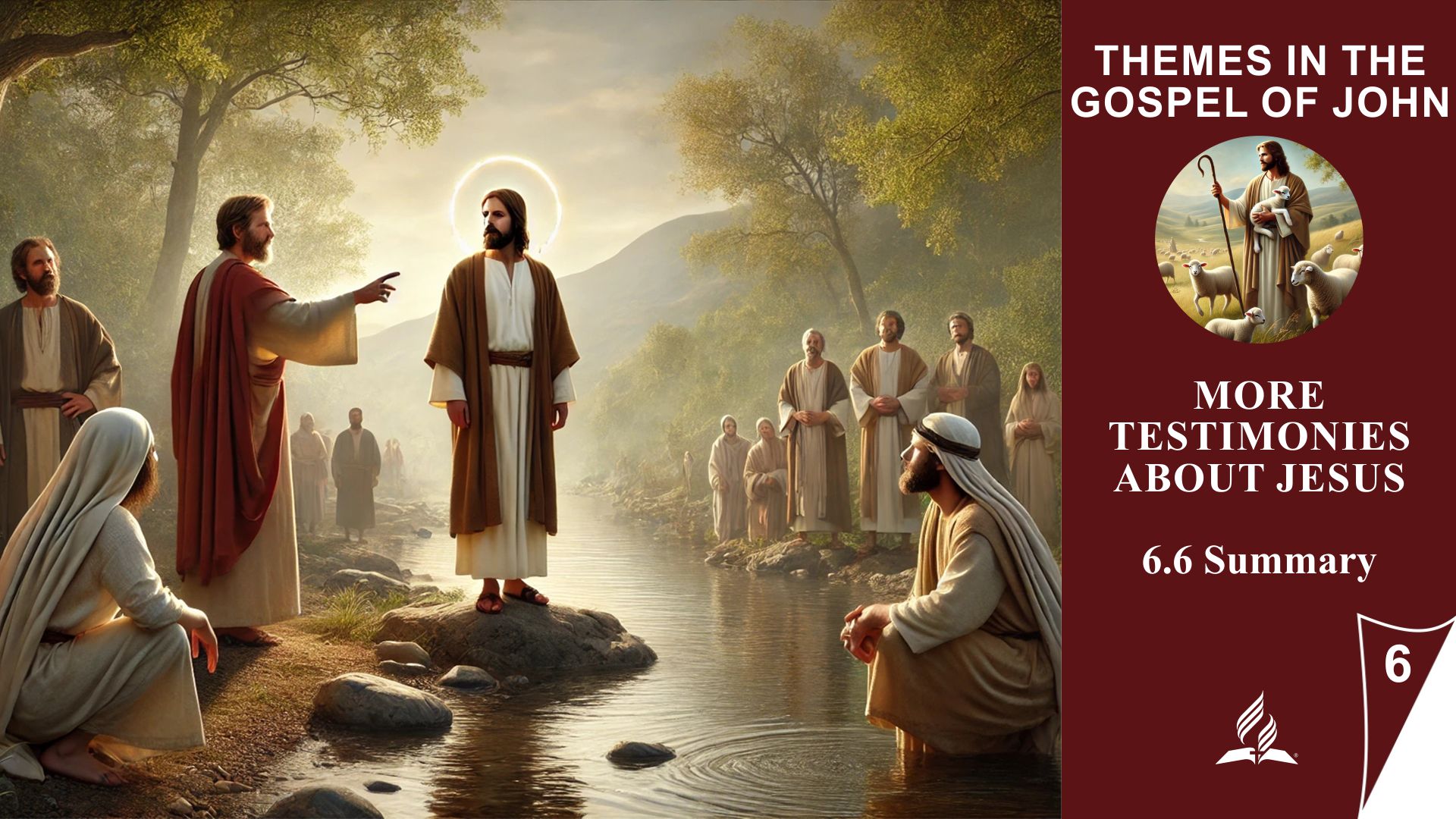


6.6 Summary
Revelations of the Messiah
In Lesson 6, we examine how various testimonies reveal and challenge the identity and mission of Jesus. The lesson begins with the testimony of John the Baptist, who refers to Jesus as the “Lamb of God” and announces Him as the Savior who bears the sins of the world. This message calls people to gain a new understanding of the Messiah—not as a political liberator but as a spiritual redeemer.
Next, the lesson discusses the testimony of the Father, who confirms Jesus’ divine sonship during Jesus’ baptism and transfiguration, demonstrating that Jesus acts in perfect alignment with God’s will. Jesus’ works, miracles, and teachings are also testimonies of the Father, expressing His love and mercy for humanity.
The crowd’s reaction to Jesus, especially during the Feast of Tabernacles, highlights another aspect: many recognize Jesus as the long-awaited Messiah or prophet, while others remain skeptical and question His origin. These differing reactions reflect the challenge that Jesus’ words and works posed to people. Despite various responses, there are also voices of defense, such as that of Nicodemus, who advocates for fair judgment and shows that some come to faith.
The lesson reminds us that faith in Jesus often means questioning our own beliefs and expectations and having the courage to make a personal decision for Him—even if that decision goes against the majority. It invites us to approach others with humility, compassion, and openness and to shape our lives as testimonies of God’s love and truth.
Lesson 6 teaches us how diverse testimonies about Jesus can also impact our daily lives and faith, inspiring us in various ways:
-
A Deeper Understanding of Jesus’ Role as Redeemer
Just as people in Jesus’ time were invited to recognize Him as the Redeemer who satisfies their deepest needs instead of seeking short-term solutions for their earthly desires, we are invited to see Jesus as the one who not only helps us externally but also heals us internally and grants us peace.
-
Seeking God’s Confirmation in Our Lives
The Father’s testimony shows the confirmation Jesus receives from God. Similarly, in our daily lives, we can seek God’s guidance and confirmation, trusting that our worth and calling are based on His love. This helps us give less weight to the voices of the world and walk our path in confidence.
-
Openness to People in Different Stages of Faith
The crowd’s reaction reminds us that people find faith in Jesus in various ways. Instead of judging, we can approach them with patience and understanding, just as Nicodemus advocated for fair judgment. Our faith becomes more inviting, and we are enriched by the diversity of experiences.
-
Courage to Believe Against the Tide
Many in the crowd did not understand Jesus and were skeptical. Similarly, we often experience that our faith is unpopular or misunderstood. This lesson encourages us to remain faithful and hold on to the truth of Jesus as our Redeemer—even if it means standing alone or in the minority.
-
Humility and Compassion in Our Interactions with Others
The arrogance of the religious leaders was a barrier to recognizing Jesus. For us, this is a reminder that true discipleship requires humility and compassion, especially toward those who are still seeking truth. Instead of judging people based on their knowledge or background, we can accompany them lovingly.
Lesson 6 calls us to lead a life of faith characterized by openness, humility, and a deep connection to God’s will. We are invited to live out our testimony daily and reflect the love and truth of Jesus through our actions.

True faith is demonstrated by standing up for the truth with courage and humility, even when the world goes in a different direction.
(Visited 36 times, 1 visits today)





















